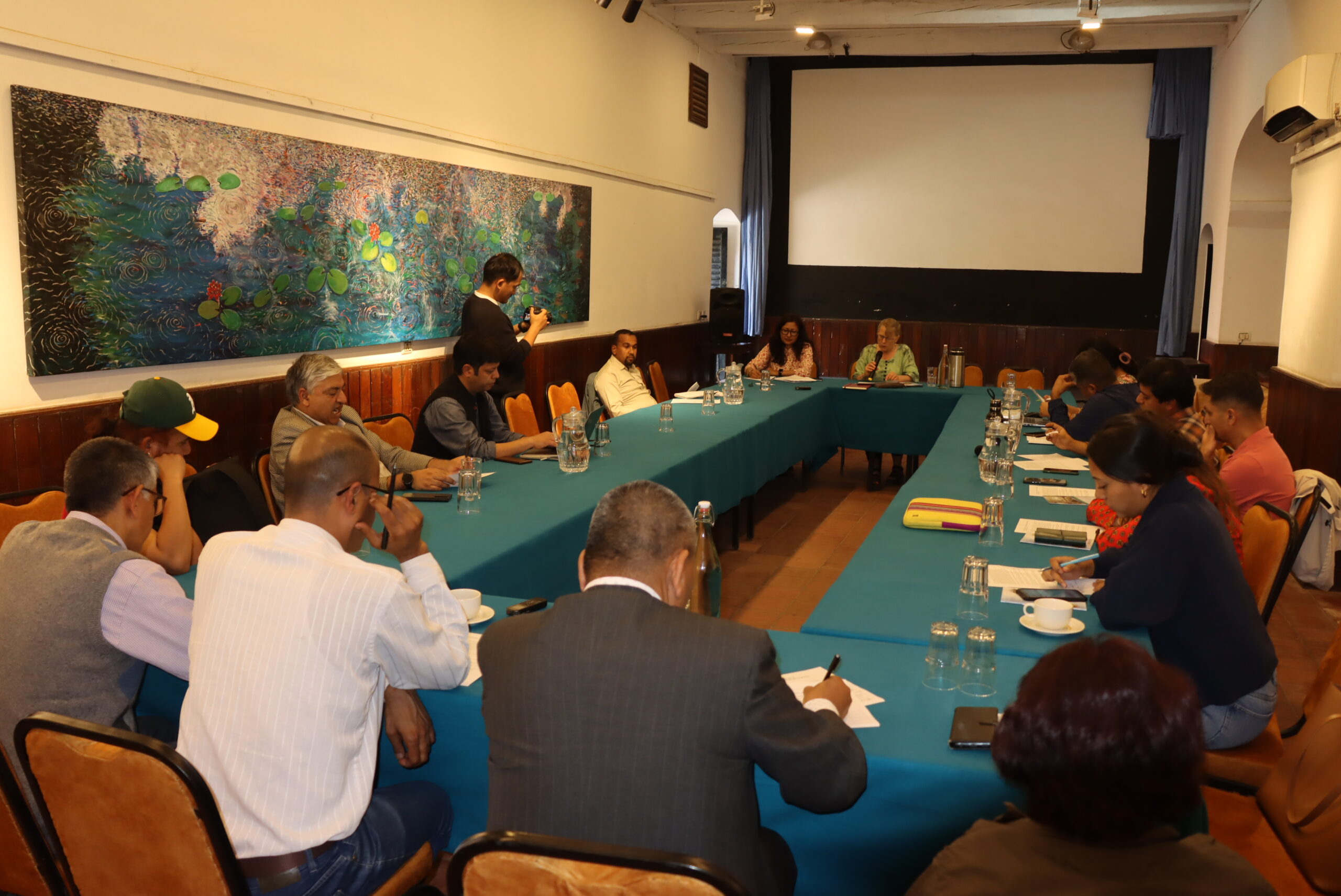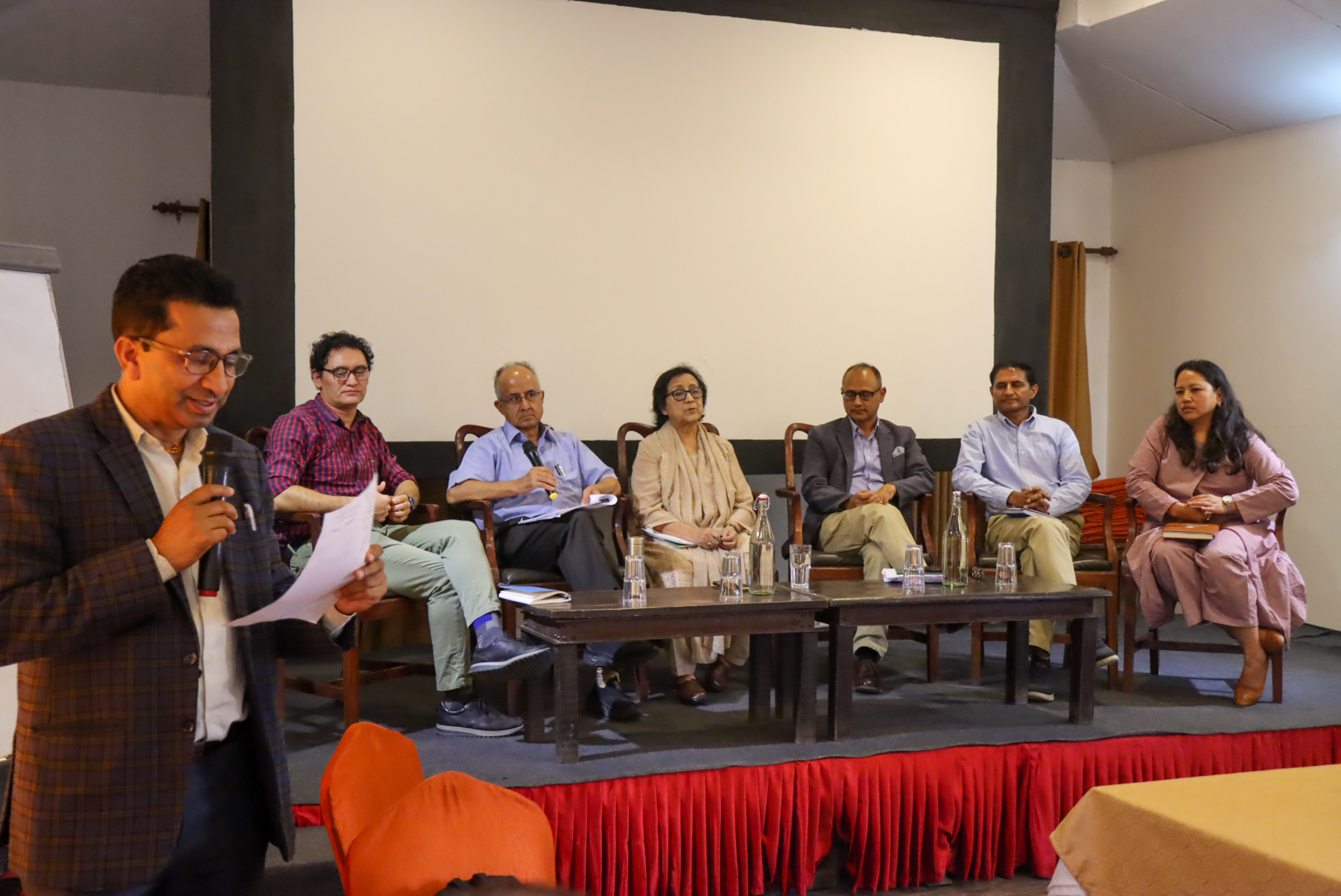Southasia Institute of Advanced Studies (SIAS), in collaboration with ForestAction Nepal (FA) and Swedish University of Agricultural Science (SLU), organized a half-day National Level Policy Dialogue on “Policy responses for growing wildlife problems of smallholder farmers” on August 13, 2023, in Kathmandu. The event brought together federal-level policy stakeholders, including Director General and Deputy Director General from the Department of National Parks and Wildlife Conservation (DNPWC), Director General from the Department of Forests and Soil Conservation, representatives from Federation of Community Forestry Users’ Nepal (FECOFUN), National Association of Rural Municipalities in Nepal (NARMIN), Community Forest Study Center (CFSC), and researchers from ForestAction and SIAS. The workshop aimed to foster an open discussion about the escalating wildlife problem and potential policy responses.
The event commenced with a brief introduction of the participants, followed by a short presentation by Dr. Bishnu Hari Poudyal from FA. His presentation covered the current state of the wildlife problem, responses organized at the local level, insights from previous stakeholders’ dialogues and different media reports on the wildlife problem. Dr. Poudyal emphasized the gravity of the growing wildlife problem and its nationwide impact, underscoring the urgency of today’s discussion to identify policy responses. Following his presentation, Mr. Ajaya Karki, Deputy Director General from DNPWC, presented existing policy instruments and responses, including recent figures on wild animal populations, injuries, fatalities, and damages. Mr. Karki highlighted the necessity for detail studies to identify problematic animals and policy reformation to remove them from the list of protected species listed in Annex no. one of the National Parks and Wildlife Conservation Act (1973). Subsequently, a representative from NARMIN shared the ground reality of the suffering people are facing and struggles from himself when he was the Chair of Chadradev Rural Municipality of Arghakhanchi and active member of NARMIN.
After the presentation session, the floor was opened for discussion, which primarily revolved around questions such as: are the relevant authorities and stakeholders recognizing the issue as a serious problem? What are the root causes? What potential measures can be taken, and what common understandings exist? At the onset of the discussion, Dr. Dil Khatri emphasized that the perspective on seeing wild animals within and around protected areas should differ from those that interact with farming. As the discussion concluded, all participants, including policy stakeholders, came to a consensus that the problem is indeed severe. They realized the limitations and inadequacies of responses adopted at the local level, underscoring the imperative need for comprehensive national-level policy responses.




